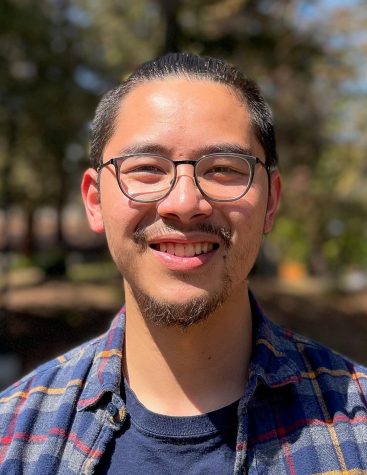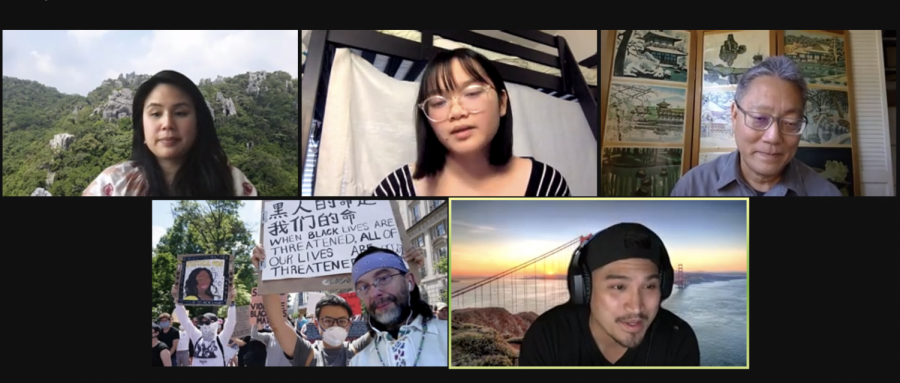Asian Americans share experiences of racism and their diverse backgrounds in speaker panel
Panelists from De Anza’s “From Learning to Collective Action – Asian American Studies” speaker event
De Anza College explored Asian Americans’ diverse backgrounds and experiences of racism in the Asian American Studies speaker event in the series “Our Histories, Our Experiences, Our Lives: From Learning to Collective Action.”
Each of the four panelists described growing up in America and spotlighted the Asian diaspora, spanning multiple countries with different immigration stories.
The panelist Tom Izu, a third-generation Japanese American, went to school near De Anza in the 1960s when the area was predominately white. He said he grew up in the shadow of Japanese internment.
“I perceived my experience to be very hostile and alienating, where people made fun of everything about me,” said Izu, executive director of the California History Center. “Even though I was born after the camps, the experience of my parents reached into my life in the forms of shame, quiet desperation and the struggle to fit in.”
Kimberly Lam, a political science major and DASG Chair of Student Rights and Services, is a child of immigrants who escaped Vietnam after the war. She said racism still persists today through the “model minority” myth.
“It’s a problem with being invisible because you are seen as a perpetual foreigner,” Lam said. “But then your people are also utilized in order to spin narratives such as the ‘model minority’ that are self-serving only for a white supremacist view.”
Lam added that anti-Asian racism erases the economic difficulties her and other families face.
“The idea that all Asians are rich is negative because it puts down other minorities by implying that they are lazy or just not doing enough,” Lam said. “My parents always felt guilty, thinking it was their fault for not being able to afford a home. And I shared that guilt growing up.”
The two-hour conversation was bookended by panelists’ reflections on finding strength in the face of racism. Francesca Caparas, an English professor and Filipina America, emphasized education and self-determination.
“The question is how do we find the space and capacity to control our lives, tell our stories and exist in our full humanity,” Caparas said. “The goal should be to break free from the structures of oppression in order to live a life that is meaningful and aligned with your values.”
The recording of the event and upcoming panels can be found here.

Kevin Vu Nguyen is a returning student journalist and editor at La Voz, formerly serving as Editor-in-Chief. He is a proud alum of both De Anza and Foothill...



